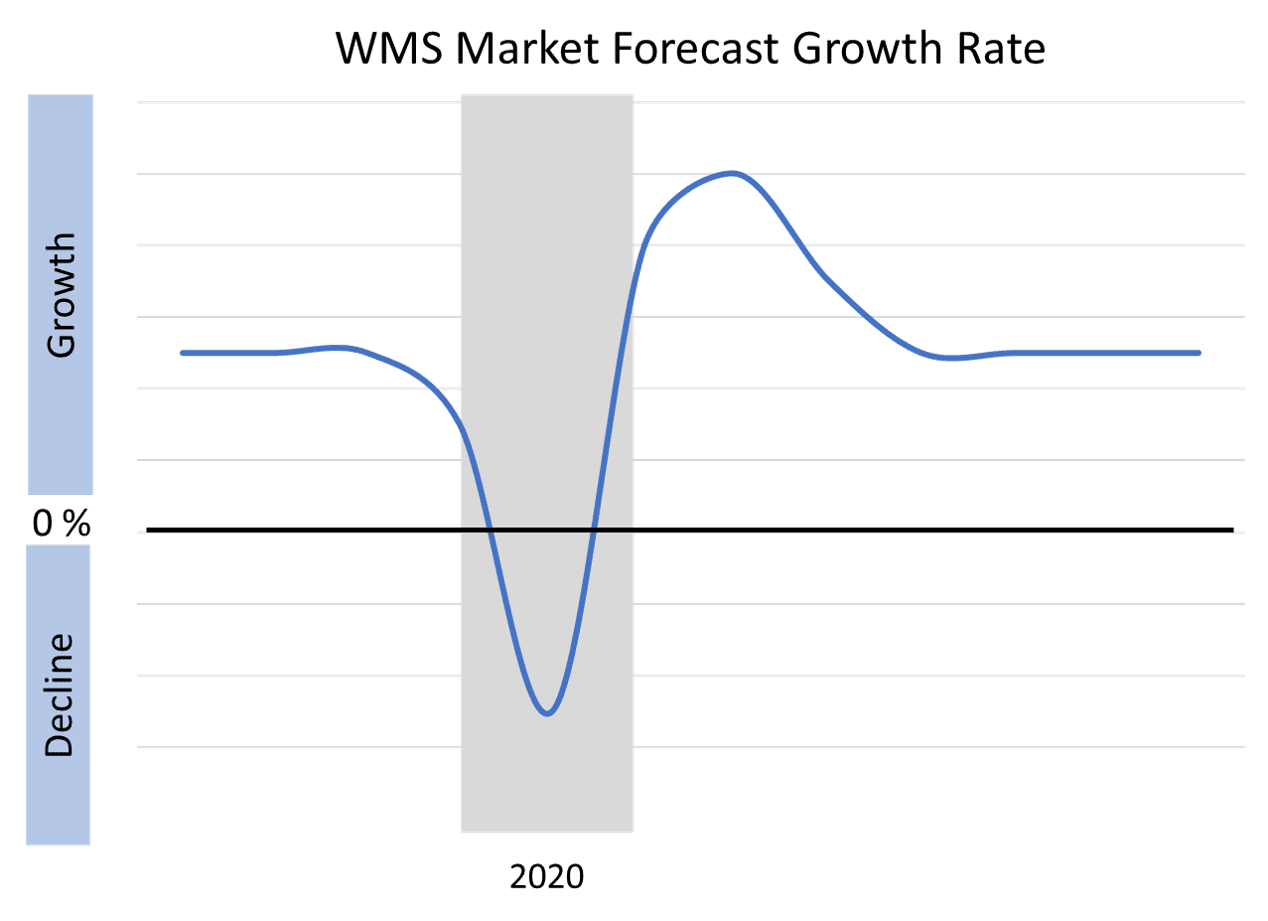I am in the final push of ARC’s annual research study on the global warehouse management systems (WMS) market. At ARC, we utilize a number of inputs for study forecasts. But as I stated in my previous post, “Logistics Technology Market Forecasting Under Uncertainty”, incorporating the business impact of the coronavirus outbreak into the forecast increases the complexity and elevates the uncertainty of the forecasting process. I would like to take this opportunity to provide a high-level overview of my perspective on the WMS market’s dynamics.
Weathering the “Great Lockdown”
In my opinion, the warehouse management systems (WMS) industry is likely to remain relatively stable during these uncertain economic times. This is due to its role as a mission-critical technology supporting an essential set of processes in a normal business environment, or in an unprecedented one like today’s. Broadly speaking, information technology is especially important today as it is the backbone that supports the distributed workforce, information economy, and our ability to communicate and remain productive during social distancing. More specifically, WMS is essential to planning and executing day-to-day fulfillment operations.
Many companies within the supply chain are experiencing an abrupt reduction in business, while others are relatively stable. Meanwhile, some direct-to-consumer fulfillment channels are experiencing demand well beyond their capacity. Regardless, I do expect demand for WMS implementations and upgrades to decrease in the short-term. Simply put, the uncertainty of the current business climate naturally causes a pull-back in business investment. However, all but the most distressed WMS users will continue to support their existing infrastructure in the form of WMS maintenance and SaaS subscriptions. But as 2020 draws to a close, I expect a different set of dynamics to emerge.
Positioning for Growth
In the medium-term, companies with adequate resources are going to see this business environment as an opportunity to position themselves for future growth. These organizations will likely invest in the technologies that will enable them to capture future growth opportunities. Within the fulfillment realm, the transition to a greater number of SKUs, smaller picking and handling units, and greater volumes has been a secular trend. Furthermore, the Covid-19 pandemic and “The Great Lockdown” are likely to accelerate the retail transition from traditional brick-and-mortar to direct-to-consumer fulfillment. This transition has been occurring at a rapid pace for a number of years. Companies will be confident in the continuation of this trend and therefore be more likely to invest in supporting the related growth opportunities. I expect the 2020 “pause” and the subsequent rebound to generate a surge in WMS business activity in 2021 as companies look to position themselves for the opportunities to come.
Back on the Path of Long-Term Trends
Most of the feedback I received during my outreach for this year’s market update fell into the “more of the same” category. To be clear, there were factors that were more or less amplified than the prior year. But in general, the major growth factors remain the same. These factors include labor costs and desire for greater productivity, labor reliability, fulfillment responsiveness for delivery cut-off times, warehouse agility for rapidly changing fulfillment profiles, and functionality that supports processes associated with e-commerce fulfillment. The persistence of these factors and the consistency in the market segment growth trends suggest that the market is likely to revert back to a similar growth pattern as it has been experiencing prior to the “Great Lockdown.” As a final word, I believe the current environment will be difficult for the WMS market, but less so than many (most?) markets. I also believe that the market will experience a subsequent surge in business activity subsequent to the downturn. Finally, I see the market reverting back to longer-term trends.
For more information on the forthcoming WMS Market Study, contact your ARC Advisory Group account manager, or the author at creiser@arcweb.com.


















